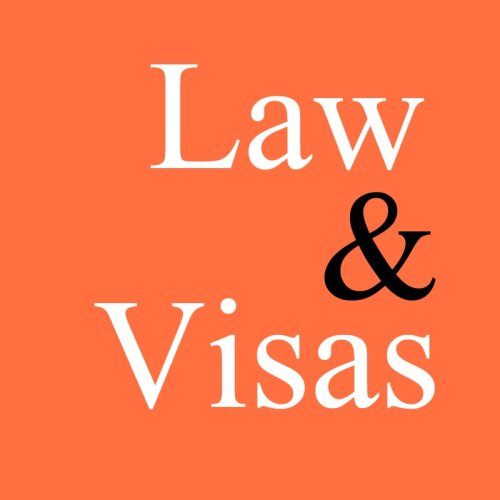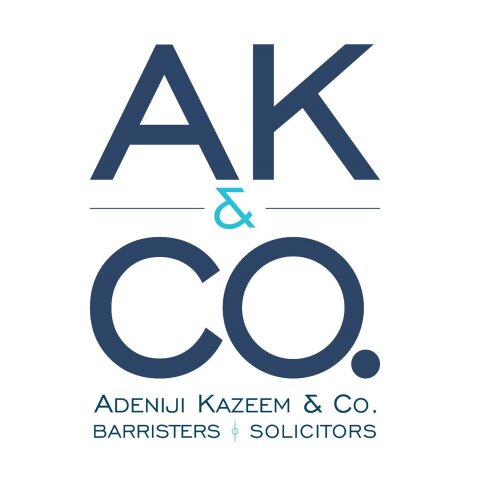About Dependent Visa Law in Lagos, Nigeria
A Dependent Visa in Lagos, Nigeria allows family members of individuals with residency or work permits in Nigeria to join them and reside in the country. This visa category is specifically designed for spouses, children, parents, or other dependent family members.
Why You May Need a Lawyer
Seeking legal advice from a lawyer specializing in Dependent Visa in Lagos, Nigeria can be beneficial in several situations:
- Understanding the eligibility criteria and application process
- Ensuring all necessary documents are prepared and submitted accurately
- Addressing any legal complexities or challenges that may arise during the application process
- Exploring options and alternatives in case of visa denials or rejections
- Seeking assistance with renewing or extending a dependent visa
Local Laws Overview
Dependent Visa laws in Lagos, Nigeria are governed by the Immigration Act of Nigeria, 2015. Some key aspects to be aware of include:
- Eligibility criteria: To qualify, the applicant must be a close family member of a Nigerian resident or work permit holder.
- Documentation: Certain documents, such as a marriage certificate or birth certificate, are typically required to prove the relationship with the sponsoring individual. Other supporting documents related to the sponsor's residency or work permit may also be necessary.
- Application process: The applicant must submit the required documents, pay applicable fees, and follow the specified procedures to apply for a Dependent Visa.
- Duration and renewals: Dependent Visas are usually granted for the same duration as the sponsor's residency or work permit. Renewals can be sought before the visa expiration to maintain lawful residence in Nigeria.
- Conditions of stay: Dependent Visa holders are often restricted from undertaking paid employment in Nigeria unless they obtain a separate work permit.
Frequently Asked Questions
Q: Who can apply for a Dependent Visa in Lagos, Nigeria?
A: Spouses, children, parents, or other dependent family members of Nigerian residents or work permit holders are typically eligible to apply for a Dependent Visa.
Q: What documents do I need to provide as proof of relationship?
A: Documents such as a marriage certificate for spouses or a birth certificate for children can be used to establish the relationship with the sponsoring individual. Additional documents may be required based on individual circumstances.
Q: Can I work in Nigeria with a Dependent Visa?
A: No, a Dependent Visa typically does not permit employment in Nigeria. Separate work permits may be required for dependent visa holders who wish to work in the country.
Q: How long does it take to process a Dependent Visa application?
A: Processing times can vary, but it is advisable to allow for several weeks to several months for the application to be processed. It is recommended to submit the application well in advance of the planned travel date.
Q: What should I do if my Dependent Visa application is denied?
A: If your application is denied, it is advisable to seek legal advice from a lawyer specializing in immigration law. They can guide you on the best course of action, such as appealing the decision or exploring alternative visa options.
Additional Resources
- Nigeria Immigration Service: https://immigration.gov.ng/
- Lagos State Government: https://lagosstate.gov.ng/
Next Steps
If you require legal assistance or further guidance regarding Dependent Visa in Lagos, Nigeria, it is recommended to consult with a lawyer specializing in immigration law. They can provide personalized advice based on your specific circumstances and help navigate the legal requirements for a successful visa application.
Lawzana helps you find the best lawyers and law firms in Lagos through a curated and pre-screened list of qualified legal professionals. Our platform offers rankings and detailed profiles of attorneys and law firms, allowing you to compare based on practice areas, including Dependent Visa, experience, and client feedback.
Each profile includes a description of the firm's areas of practice, client reviews, team members and partners, year of establishment, spoken languages, office locations, contact information, social media presence, and any published articles or resources. Most firms on our platform speak English and are experienced in both local and international legal matters.
Get a quote from top-rated law firms in Lagos, Nigeria — quickly, securely, and without unnecessary hassle.
Disclaimer:
The information provided on this page is for general informational purposes only and does not constitute legal advice. While we strive to ensure the accuracy and relevance of the content, legal information may change over time, and interpretations of the law can vary. You should always consult with a qualified legal professional for advice specific to your situation.
We disclaim all liability for actions taken or not taken based on the content of this page. If you believe any information is incorrect or outdated, please contact us, and we will review and update it where appropriate.

















